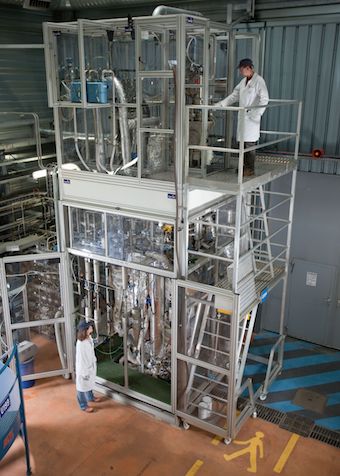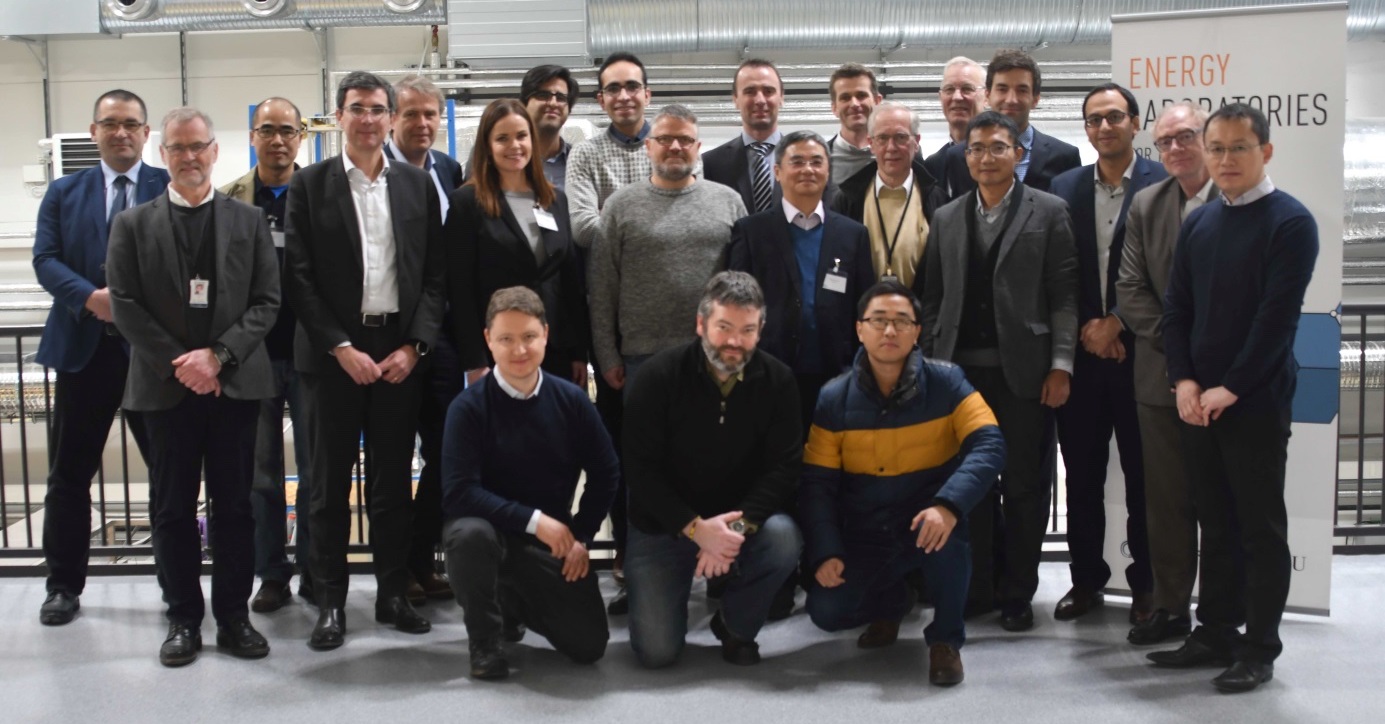

ABOUT THE PROJECT
Chinese-European Emission-Reducing Solutions, CHEERS.
The CHEERS project involves a 2nd generation chemical-looping technology tested and verified at laboratory scale (up to 150 kWth). Within five years, the core technology will be developed into a 3MWth system prototype for demonstration in an operational environment. This constitutes a major step towards large-scale decarbonisation of industry, offering a considerable potential for retrofitting industrial combustion processes.
The system prototype is based on a fundamentally new fuel-conversion process synthesised from prior research and development actions over more than a decade. The system will include heat recovery steam generation with CO2 separation, which will comply with industrial standards, specifications and safety regulations. Except for CO2 compression work, the innovative concept is deemed capable of removing 96% of combustion-related CO2 while eliminating capture losses to almost zero.
Applied to industrial auxiliary systems, CHEERS aims at reducing drastically the efficiency drop lost to the CO2 capture chain. Hence, a reduction by at least 50%, from a current level of 9-10%- points, typical of absorption techniques, to less than 4%-points in power generation systems seems feasible. In steam generation systems, the gain is even larger, dropping from a level of 18-33% efficiency penalty with absorption techniques to a mere 2-3%- points with the new technology.
This gain shall be demonstrated in operations using petroleum coke as the most challenging fuel. In this respect, CHEERS is conceived as a greening measure for the petroleum refining sector, converting petroleum coke and heavy residual oil into auxiliary steam and power. It is anticipated that a successful demonstration will pave the ground for a wider deployment of the technology in the energy-intensive industry, especially processes hampered with combustion-related CO2.

CHEERS has a budget of €16.8 million, financed by the European Union’s Horizon 2020 research and innovation programme under grant agreement No. 764697 together with the Chinese Ministry of Science and Technology (MOST) and Chinese industry. The system prototype demonstration will be carried out in Deyang at the Key Laboratory for Clean Combustion and Flue Gas Purification of the Sichuan Province, P.R. China.
The responsibility of the action lies with the CHEERS consortium, which comprises nine parties: SINTEF Energy Research (coordinator, Trondheim, Norway), IFP Energies nouvelles (IFPEN) (Lyon, France), Tsinghua University (Beijing, China), SINTEF Industry (Oslo, Norway), Total (France), Dongfang Boiler Group (Zigong, China), Zhejiang University (Hangzhou, China), Politeknika Slaska (Silesian University of Technology) (Gliwice, Poland), and Bellona (Brussels, Belgium).










